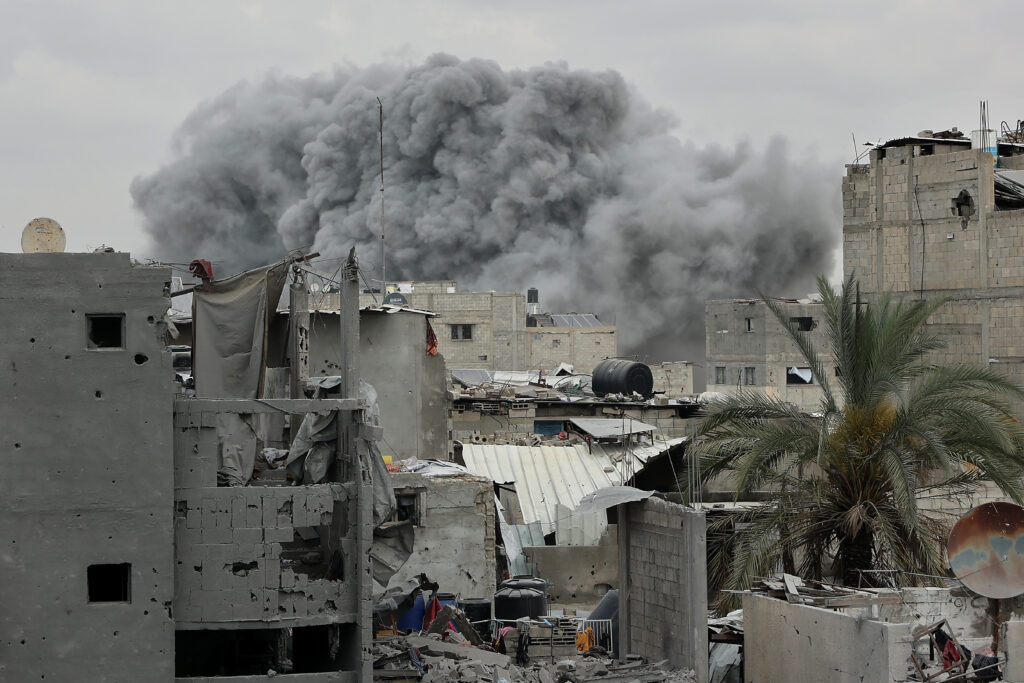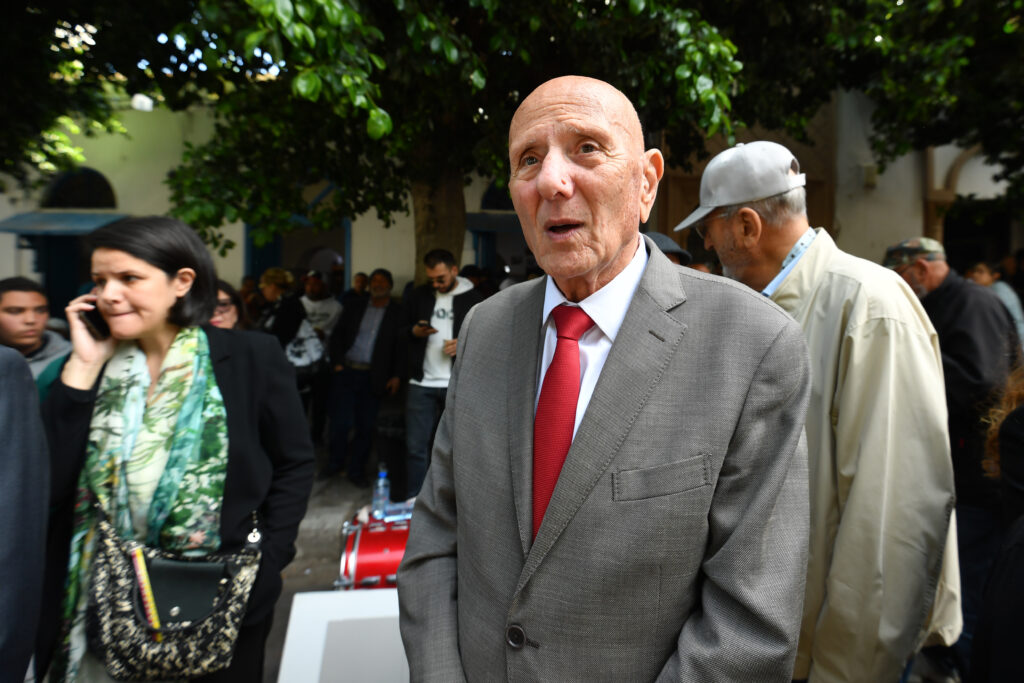Gaza rescuers say children among 10 killed in Israeli strike
Dozens of Israeli air strikes on Gaza have killed “only women and children” after a ceasefire collapsed, the UN said, as an Israeli attack in the territory’s south on Friday left a family of 10 dead.A UN rights office report also warned that expanding Israeli evacuation orders were resulting in the “forcible transfer” of people into ever-shrinking areas, raising “real concern as to the future viability of Palestinians as a group in Gaza”.Israel’s military said it was looking into the attack that killed members of the same family in Khan Yunis, southern Gaza, adding separately that it had struck approximately 40 “terror targets” across the territory over the past day.Israel resumed its Gaza strikes on March 18, ending a two-month ceasefire with Hamas.Since then, more than 1,500 people have been killed, according to the health ministry in the Hamas-run territory to which Israel cut off aid more than a month ago.”Ten people, including seven children, were brought to the hospital as martyrs following an Israeli air strike that targeted the Farra family home in central Khan Yunis,” civil defence spokesperson Mahmud Bassal told AFP.AFP footage of the aftermath showed several bodies wrapped in white shrouds and blankets, and footage of the house showed mangled concrete slabs and twisted metal.- ‘Women and children’ -Turkish President Recep Tayyip Erdogan lashed denounced Israel, saying: “If this is not barbarism, I ask you, what is it?”Early Friday, Israel’s military issued an evacuation warning to residents of several areas east of Gaza City ahead of a new offensive there.The UN decried the impact of the ongoing Israeli strikes, finding that “a large percentage of fatalities are children and women”.”Between 18 March and 9 April 2025, there were some 224 incidents of Israeli strikes on residential buildings and tents for internally displaced people,” the UN human rights office said in Geneva.”In some 36 strikes about which the UN Human Rights Office corroborated information, the fatalities recorded so far were only women and children.”Israel’s military has repeatedly said Palestinian militants often hide among civilians, a charge Hamas denies.UN rights office spokeswoman Ravina Shamdasani also raised concerns over “the denial of access to basic necessities within Gaza and the repeated suggestion that Gazans should leave the territory entirely”.Saudi Foreign Minister Faisal bin Farhan, after meeting regional counterparts in Turkey, urged “maximum pressure to ensure” aid is delivered into Gaza.The war broke out after Hamas’s October 7, 2023 attack on Israel resulted in the deaths of 1,218 people, mostly civilians, according to an AFP tally based on Israeli official figures.Militants also took 251 hostages, 58 of whom are still held in Gaza, including 34 the Israeli military says are dead.Gaza’s health ministry said Friday at least 1,542 Palestinians have been killed since March 18, taking the overall death toll since the war began to 50,912.- Ceasefire efforts -A truce brokered by the United States, Egypt and Qatar that took effect on January 19 and lasted until March 17 saw the return of 33 Israeli hostages, eight of them in coffins, in exchange for around 1,800 Palestinian prisoners.In a Passover holiday message, Israeli Prime Minister Benjamin Netanyahu reiterated his pledge to bring the remaining captives home.He spoke after US President Donald Trump suggested progress in hostage release talks, telling a cabinet meeting on Thursday that “we’re getting close to getting them back”.Trump’s envoy Steve Witkoff was also quoted in an Israeli media report as saying “a very serious deal is taking shape, it’s a matter of days”.Israeli media reported Friday that Egypt and Israel had exchanged draft documents on a ceasefire-hostage release deal.The Times of Israel said Egypt’s proposal would mean eight living hostages and eight bodies released in exchange for a truce of between 40 and 70 days and a large number of Palestinian prisoner releases.A senior Hamas leader who declined to be identified told journalists the group had “not received any new ceasefire offer”.”The movement is open to any new proposal that would achieve a ceasefire, withdraw the occupation’s forces, and end the suffering of the Palestinian people.”In his message for Passover — a holiday celebrating the biblical liberation of the Israelites from slavery in Egypt — Netanyahu said that “together we will return our hostages”.He has insisted that increased military pressure is the only way to get the captives home.




